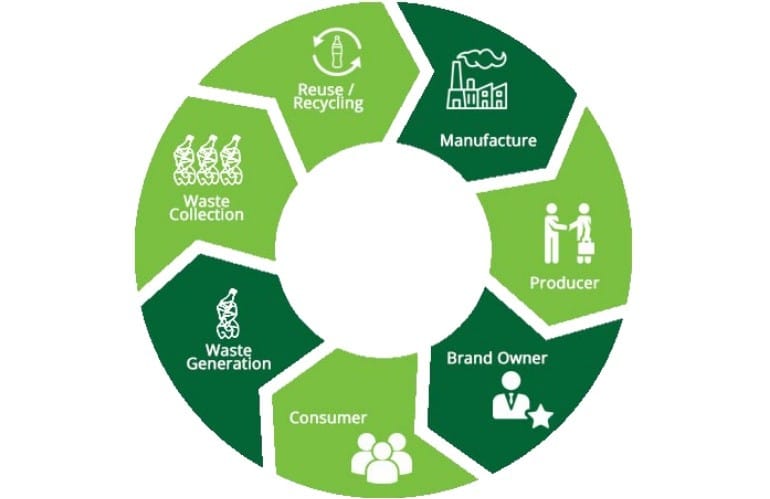


To discharge obligation of take back and to meet expenses relating to logistic, recycling & disposal of hazardous substances the directive also provided for Advance Recycling Fee (ARF), which producers are eligible to collect from the customers at the time of sale. The ARF so collected remain earmarked to meet above obligations on the part of the producers / importers and after collection either on their own or taking help of third party logistic, the end of life equipment are sent to the certified recyclers for environment friendly disposal as per the norms set under the above directive.
As per E-waste (Management & Handling) Rules, 2011, manufacturers of electronic goods are responsible for setting up a call centre to facilitate end user to get in touch with the producers to return back their products at the end of life, set up collection centre or a take-back points either individually or jointly out of their funds to channelize e-waste from end user to Recycler(s). Manufacturers are also responsible for the disposal of their own waste generated during manufacturing process in line with the principle of ‘Extended Producer Responsibility’. The regulation aims to ensure that e-waste is channelized under above system reaches to the registered dismantlers and recyclers.
The regulation applies to electronic and electrical equipment, along with their consumables and components that are part of or included in the electronic product at the time of discarding. Some of the electronics and electrical products which come under the purview of the e-waste rules include mobile phones, computers, laptops, television sets, ACs and other home appliances.
E-Clean E-Green partners corporates across sectors to develop e-recycling programs that are customized to their specific needs, whilst balancing compliance, convenience and cost, through a highly efficient take-back and recycling program. The plans can be tailored as per the requirement of individual producers / manufacturers to ensure responsible management of end-of-life electronics products.
E-Clean E-Green’s scientific recycling and disposal methods aim to protect human health and the environment from any hazardous consequences, which would be otherwise caused by the unscientific waste management. Through our state-of-the-art e-recycling facility and a process that is fully compliant with global environmental norms, we help maintain our customers’ leadership position and business excellence. Our CSR initiatives help augment our e-waste management programs and enable customers to meet their Environmental, Social and Corporate Governance (ESG) mandates.